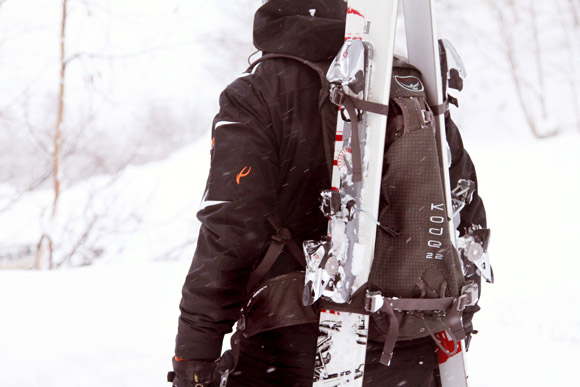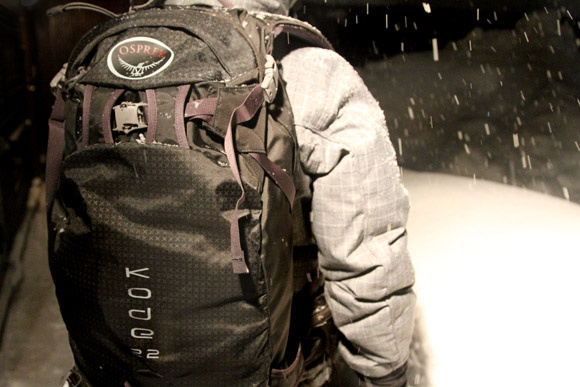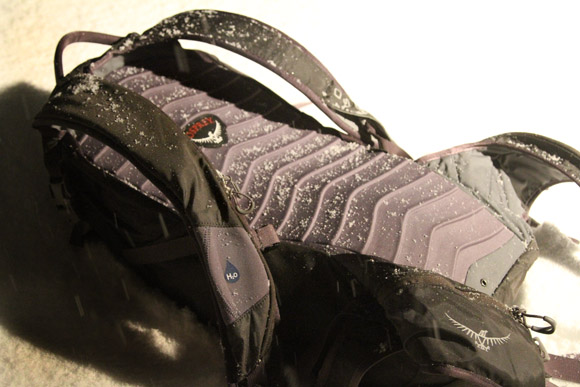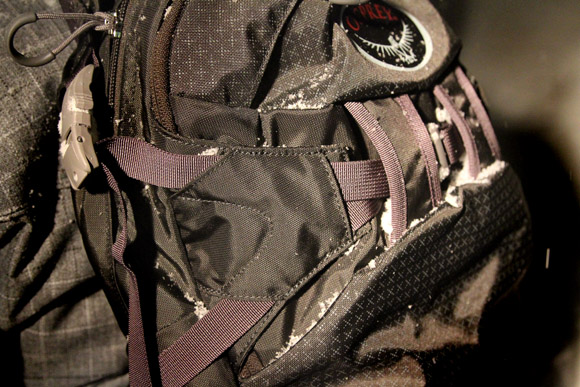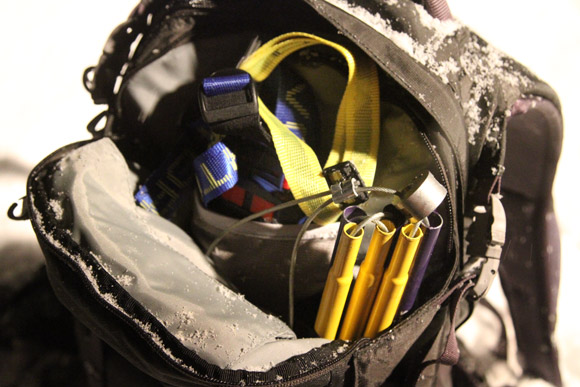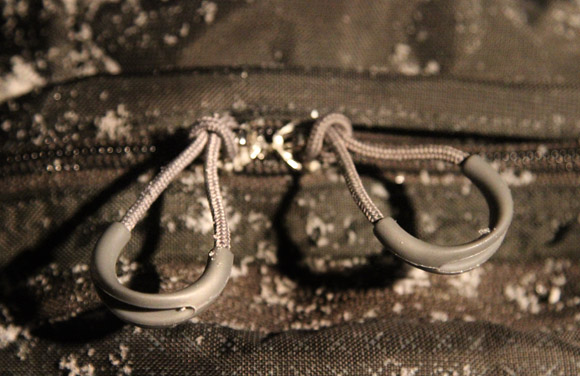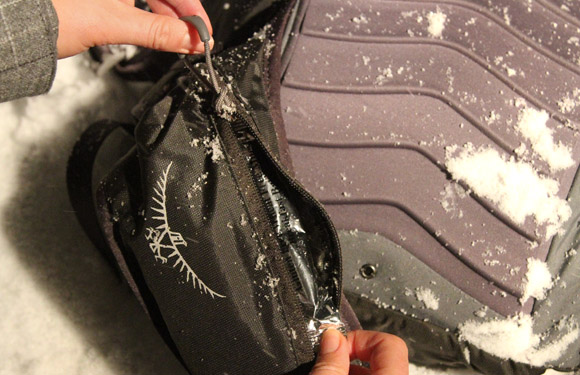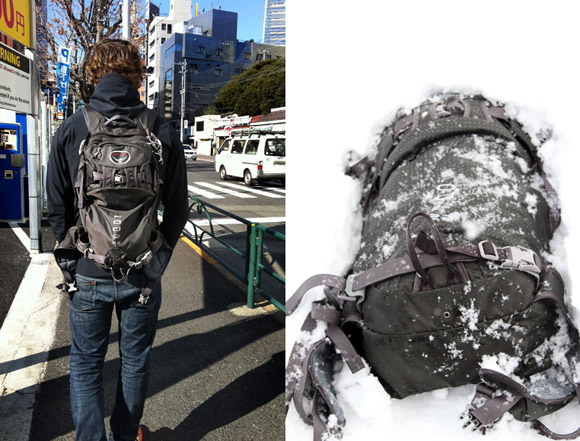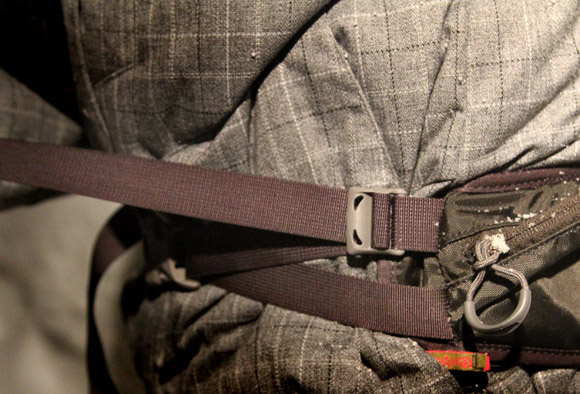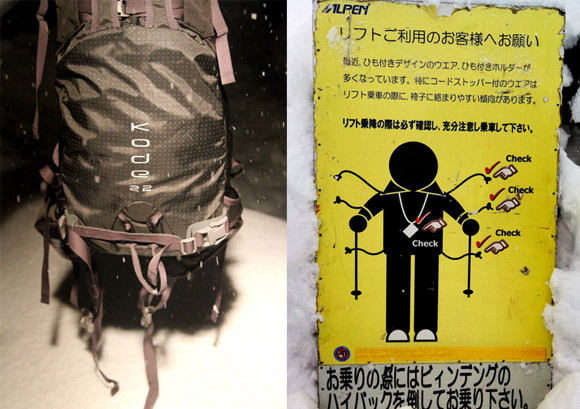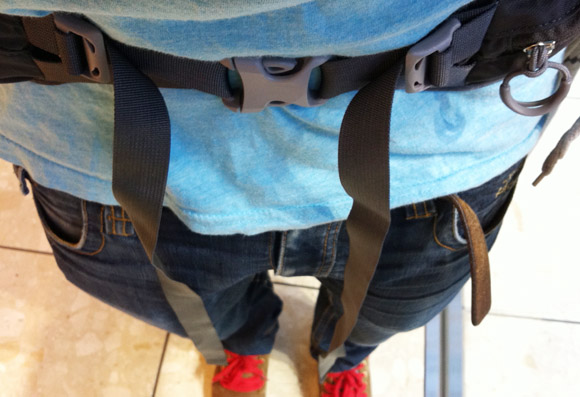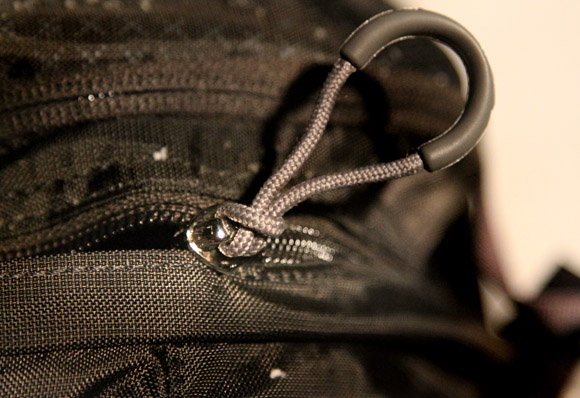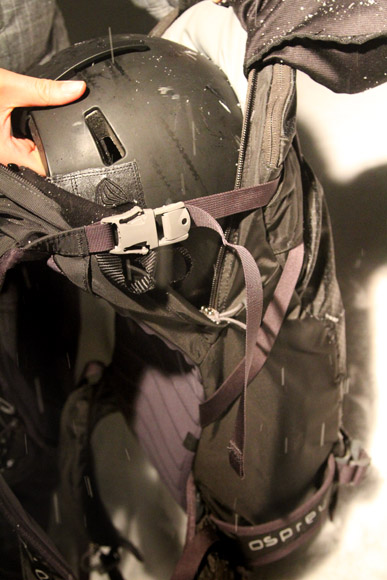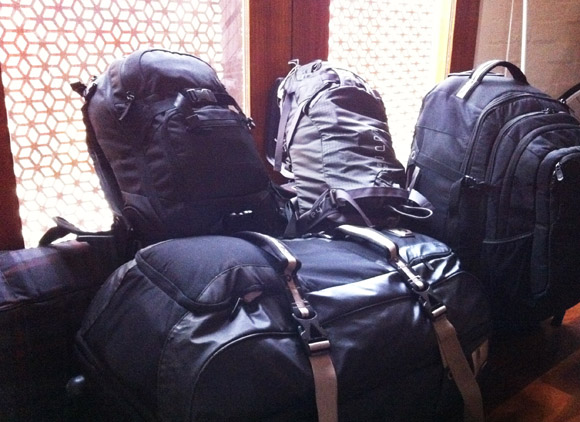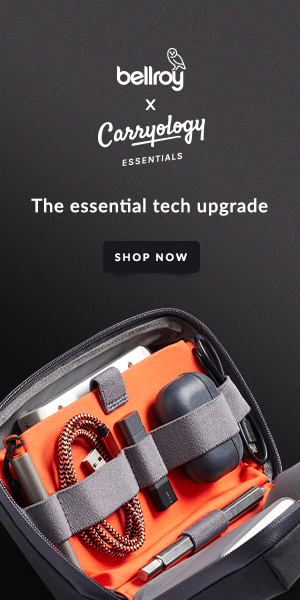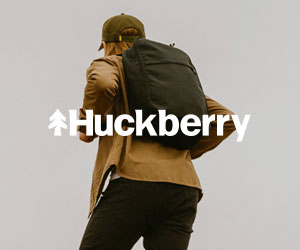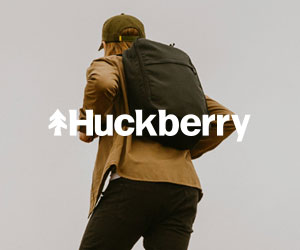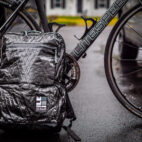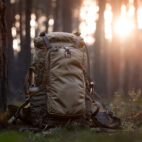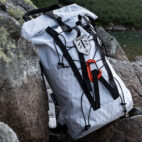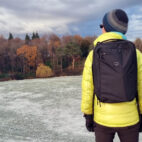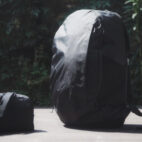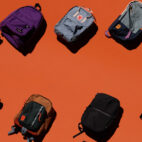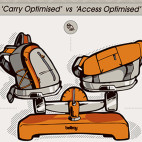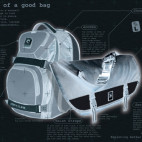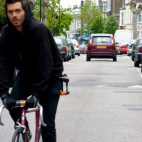Road Tests :: Osprey Kode 22 | Part 2
We get more intimate with this side-country mountain pack
We’re back from Japan. It puked. Truck loads of pow. Hardly saw the sun. Just the sort of trip that lets you play with a mountain pack. So how did we like the Osprey? It was pretty good, but we figure you’d like a few more details than that. Perhaps give our Part 1 a quick review, and then follow on below…
The pack
Osprey were really good in sending us the Kode 22 to test. As a refresher, it’s a pack designed for a day’s riding, usually hanging at or near resorts. It works for carrying snowboards or skis, and really caters to all the avy gear you should be carrying if you are ducking out past the ropes.
–
What we liked:
Shape: The long and skinny format leaves loads of room for swinging the arms, and plenty of length for carrying long handles. It also gets the waist strap right down onto your hips, so if you’re carrying some weight, it takes it quite well. It’s a shallow pack, so if you’re traveling light, you can squeeze it between the chairlift’s backrest and safety bar.
Build quality: It really is a well finished pack. All the components are top notch, and the fabrics are lightweight but durable. Full points here.
Harness and shoulder straps: They’re well detailed, well shaped and well finished. Snow brushes off easily, and the form hugs your body nicely. There’s also all the hydration compatible stuff if that’s your thing.
–
Compression Straps: Osprey have busted out some mechanical advantage pulley action for compression and waist straps. What does that mean? For every inch you tighten the strap, it only moves half an inch, so you get more effective force when you want to crank something tightly.
Fat ski carry: If you’re a skier that likes to ride fats, then the Kode should still have you covered (for at least another season or two of progress). When not snowboarding, we were playing around on Pontoons, Seth’s, and all sorts of fats, and they all managed to squeeze in. There’s a lot of other ski packs that can’t cope with these sort of planks.
–
Avalanche Gear Section: This is neat, well organised, and long enough to fit most probes and shovel handles (unlike many snow packs). It is separated from the main section, so you’re less likely to get snow all through your lunch.
–
Glove friendly gear: The zip pulls are great, even with mittens. Most of the clips also work a treat with clumsy gloved paws.
–
Waist Pockets: They are long enough to fit muesli bars or small cameras. They’d be improved with some stretch, but they’re better than most.
–
Look: OK, so it’s pretty techie, but if that’s your thing, then it works across the urban or mountain environments. I saw two pretty cool cats busting one of these in Tokyo, and then there was me (sorry Osprey).
–
Waist belt: This was the second spot that Osprey helped you with some pulley action, so you can really crank it tight. However that also has a disadvantage, which brings us to the things we didn’t love with the pack…
–
What we didn’t like
Excess Strap-age: There’s a strong correlation between features on a pack and the amount of straps. Unfortunately with the Osprey, this held true.
The number of strap ends that dangle from the Kode is pretty crazy. I found myself tying and retying them continually.
–
The waist strap: Remember that waist strap we mostly liked? There’s some serious downsides to it, like straps that are twice as long (because of the pulley action mentioned earlier). Also, with the large pack (which suits a 6 footer like me), I was almost too skinny for the belt. I’m a 32 inch waist, so if you’re 28″ or 30″, watch out for that.
Zip Snags: Zip flaps have made a comeback over the last few years. They neaten a bag’s look, and provide some shelter from the elements. The downside is that if not lined with Hypalon or similar, the zip head can snag on them, which happened a couple of times when I was going for my shovel…
Restricted movement: I guess this point shows how all design is a series of compromises. While the long shape and body hugging form work nicely for hauling heavier loads around, when you start to twist and turn while riding, it can be restrictive. We were testing a shorter prototype pack for another brand, and the shorter pack left us with more freedom of movement when doing those radical gnarly bodacious twisting airs and stuff. We’ve spoken before about how trekking harnesses work better if your body is vertical and not twisting, and the Osprey really feels like this is what it’s been optimized for.
–
The bottleneck: The above listed niggles are all pretty minor. The ‘bottleneck niggle’ was the only one that was really significant. The zip for the main section is short, only allowing you to open up the top third of the pack. With the beautifully sculpted tapering form, that means that a helmet, SLR or video camera really struggles to squeeze past the opening, all caught in an hour-glass constriction. When reaching for any of these items in a hurry, it started to get pretty annoying.
Part 1 stuff: Hopefully you gave our Part 1 a quick read over. It covered a couple of other bits like the oddly placed goggle pocket and the lack of a stabiliser strap for vertical snowboard carry. They still hold.
–
Best suited to
Specialist side-country riding: It’s not a great pack for around town, due to it’s restrictive opening. However if you just want a pack for riding, and don’t haul bulky cameras around, the Osprey gives you primo construction, all the necessary pocketing, and some good carry options.
Not really suited to
The allrounder: The person looking for one pack to do everything, or the rider that likes squeezing watermelons into their backpack.
–
Any other pack envy?
Dakine Heli Pro equivalents: Yeah, this is a weird call for me. I used to always want a specialist pack purpose built for the activity, which the Osprey is. But now with lower luggage limits on airlines, a little more all-round ability helps you pack less, and enjoy the rest of your travels.
–
Conclusion
The Kode 22 is a great specialist pack. It’s really well made, the materials and components are all appropriate, and if you want to announce your intentions, it does that superbly. If you are looking for a bit of an all-rounder pack though, that can work well on planes, trains and maybe even be taken to uni or work, there are better options. This is a specialist pack, and belongs in the mountains (or on people that want to look like that’s where they are heading to).





 Carry Awards
Carry Awards Insights
Insights Liking
Liking Projects
Projects Interviews
Interviews
